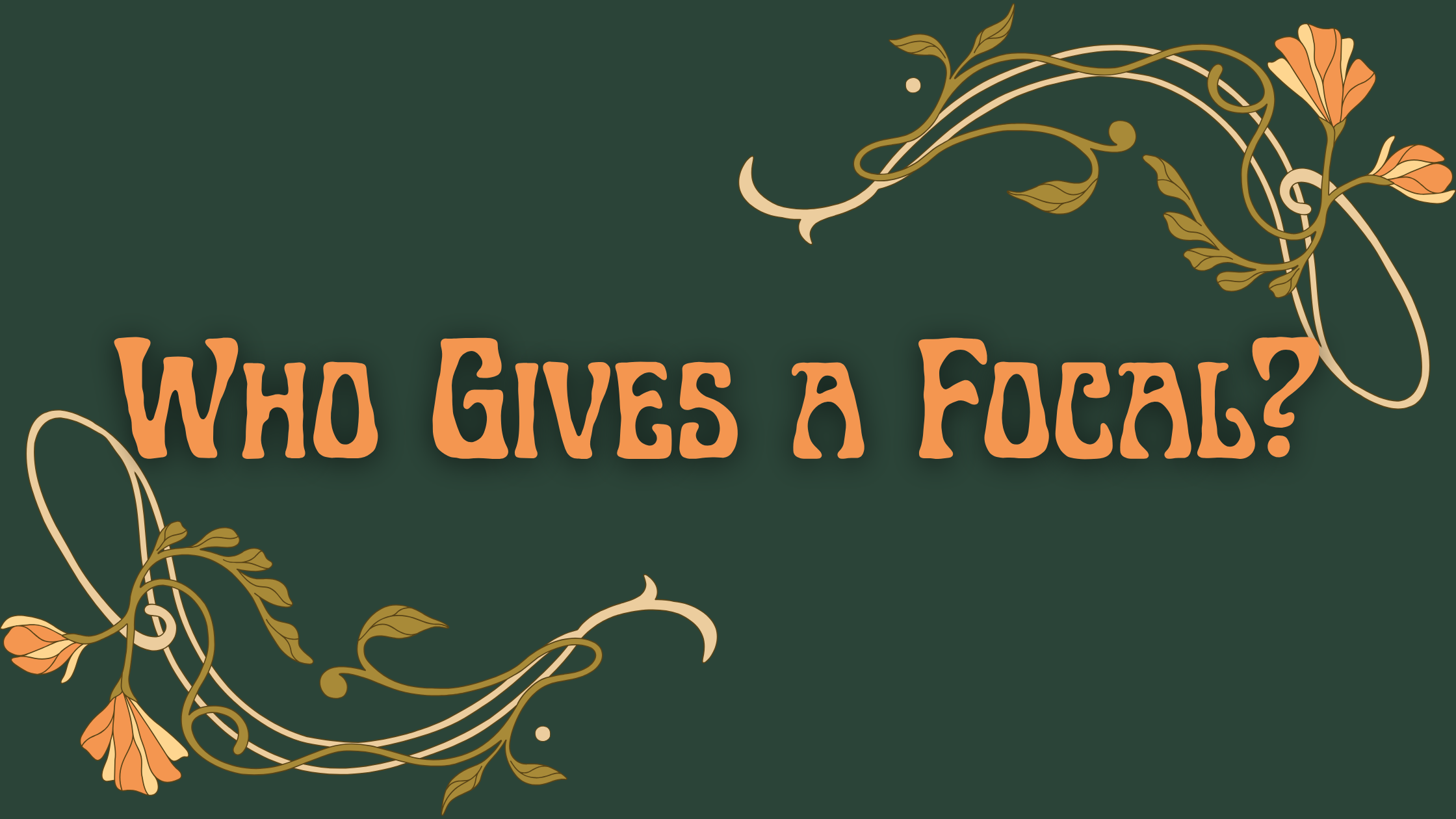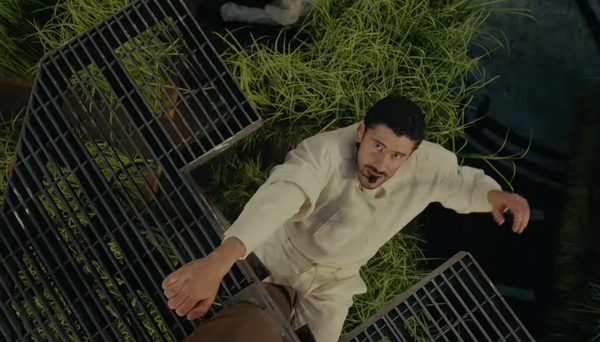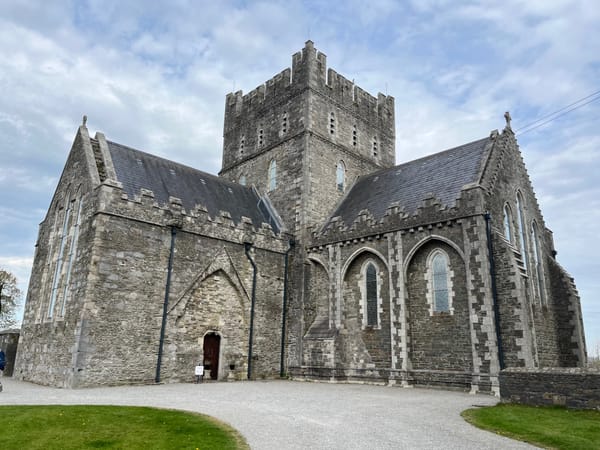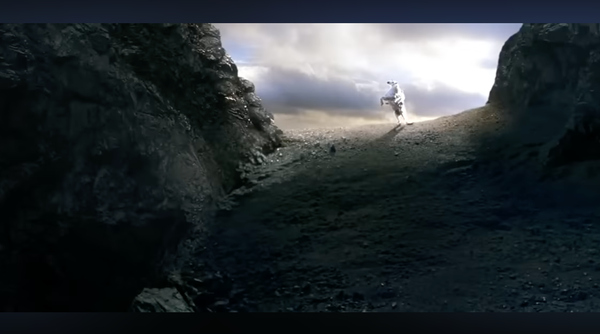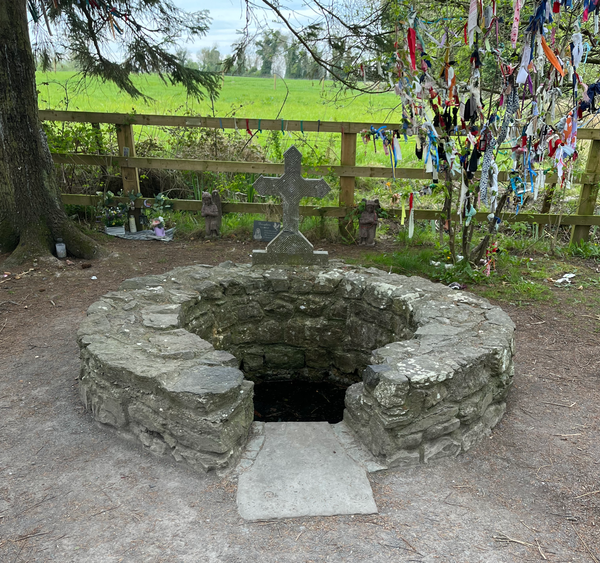The Death of Manchán Magan Reminds Us to Relate to Each Other
We must commit to Manchán Magan's revolutionary and anti-colonial act of remembering.
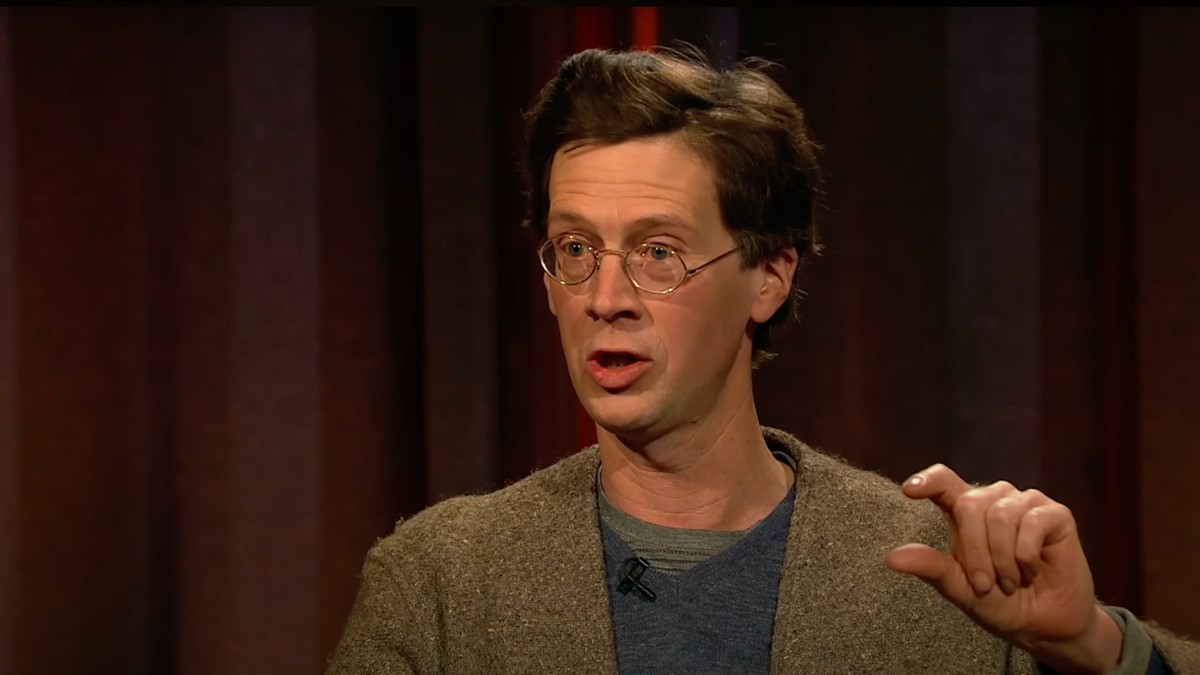
Irish author, documentarian, and steward of the Irish language Manchán Magan died on Friday. His loss is deeply felt across Ireland, and particularly by my classmates and teachers in Irish. For me, he was a man committed to the preservation of our collective human memory and our connections to the land through language; a deeply anti-colonial act in the face of climate crisis, neocolonialism, and extraction which seeks to keep us separated.
He was 55 years old and had been battling prostate cancer for a year and a half. Unlike some of my classmates, I did not get to experience his brilliance in person or for very long. The first book I read of his was Brehons and Brahmins last year, which tracks the similarities between Irish and Indian lore, languages, and spirituality. He gave his last interview with RTÉ Radio 1 on September 13, and a few days later I saw an ad that he would be speaking on Advaya in a free webinar called “Land in Language” that I knew I had to sign up for. It was almost cancelled due to his poor health.
He spoke from his hospice bed, and moderators and Manchán took great care to provide guardrails for him to leave the conversation if it proved too much, but he was lively as ever. My brain wants to call him “súilíneach” but that is the word for bubbling water, not a person. Still, his grá for talking about Irish and languages was as effervescent as the word súilíneach might connote. If you look up the word “bubble,” “bubbly,” “lively,” “bubbling” on focloir.ie you will get many, many words for various states of bubbliness, for which noun is bubbly, when it’s bubbly. A lot of Irish is like this, and Manchán spoke of it much in his many books on the matter. The title of his latest book is Ninety-Nine Words for Rain (and One for Sun).
Speaking of water—as a South Floridian born and raised, the ocean is near and dear to my heart—Manchán spent much time among fishing communities on the coasts of Ireland, collecting words that contain the wisdom of how to live from the land. Borrataí is one such word, which describes an offshore reef that, before the climate crisis of today, once held an abundance of kelp, which in turn sheltered the pollock and ballan wrasse populations, which would in turn feed the coastal communities of Ireland. Within the word borrataí is a breadth of information and wisdom, an entire ecosystem as Manchán said. To lose these words because we feel we don’t need them is to forget the sort of relationships between flora, fauna, people, the seasons, the weather, and on and on.
In 2020, he started a project to record these words called the Sea Tamagotchi, an act of preservation and also deep anti-colonial resistance. “Why did the Irish along the coastline starve during the famine?” he asks in an interview with Richard Curtin, senior economist at Bord Iascaigh Mhara. “I realized that’s the wrong question to ask … our colonized minds are programmed to believe that we are somehow at fault for the famine rather than acknowledging the fact that our ancestors had no access to the coast. The ruling classes controlled the ports and fishing licenses and then years of poverty meant they had to sell off their boats.”
The Global Sumud Flotilla attempted to break through the Israeli blockade of Gaza (the closest breakthrough since 2010) on October 1. On the flotilla were over 450 civilians and activists, including Greta Thunberg and Irish Senator Chris Andrews, who have now been released after being kidnapped and subjected to violence and humiliation by the Israeli state. Palestine itself being a coastal country, one which subsists on the sea while also being barred from doing so by an occupying force, I am reminded that proximity need not be the only things that connect us on this earth. It’s our shared struggles, it’s the ways in which many different peoples may harvest from the sea. Within the pattern of the keffiyeh, the memory of survival is woven in a fisherman’s net, the same way there are many different words as Gaeilge (and other languages as well) to describe that same survival. In the chaos of the Israeli Occupation Forces' interception of the flotilla, Palestinian fisherpeople were able to cast their nets out once more after decades of being kept from the sea.
Manchán saw beyond borders through language. It wasn’t that he saw the Irish language as exceptional in its ways of expression, he saw that there was commonality in this expression with languages globally that is being eroded via neocolonialism. As a queer, American woman whose families assimilated from Poland and Sweden amid wars and famine, my story is not all that unique in that the knowledge passed down through language is not seen as important. It’s “obsolete” in this American, Anglophone, 21st-century life that I lead.
But to not know where the underwater reefs are that house the kelp and fish to survive because we lost the word that gave us that ancestral knowledge keeps us reliant on our broken systems instead of the Earth we are all a part of. It keeps our minds and tongues colonized. Similarly, translator Don Mee Choi writes, “So my tongue even before it had ever encountered English language was a site of power takeover, war, wound, deformation, and, ultimately and already, motherless.”
Manchán always urged people to remember, and to marvel at how one society thousands of miles away may have similar stories and lore to another. Land, language, and mythology and lore, are all intertwined in the human experience, Manchán believed, and that they are also all “aspects of the divine.” The line between these two things is very thin indeed. Thinner than we'd like to believe when we categorize our lives stringently between life and death, life and the divine.
Manchán spoke of the many books he wanted to write, particularly now of how he’d write about death. Death and Irishness go together like peas and mashed potatoes. The Irish are so reverent toward death, it is so close to them always, that many of their lasting traditions, words, and legends revolve around it. (I wrote about the Irish caoine a few weeks ago, and this entire newsletter has been very death-centered come to think of it.) When someone dies, in Irish we say, “Tá siad imithe ar shlí na fírinne.” They have gone in the way of truth. Manchán said he did not fear death, rather he thought that his transition into the otherworld would go pretty smoothly.
As he spoke in the webinar, there were moments where a fact that he recited many times or a thought would leave him that he could not recall. At that point, he said, the cancer had already taken parts of his brain, but he has transitioned now, and I hope it has all returned to him and more. I weep for his family, for us, for the books he never got to write. I don’t think we know yet what kind of loss this truly is for the language, but we must take up his mantle together. And we must commit to his revolutionary and anti-colonial act of remembering. It is through this act that we can connect more meaningfully to each other across cultures, across language, across time.
Inis dom. Tell me. What about Manchán spoke to you most, and what of him will you carry with you through this time of collapse and upheaval? The Tower tells us that after destruction and ends, new beginnings must be built. I feel new walls people build up around themselves, their families every day, but what if instead we tore down those walls and related to each other? What then could we build instead?
Who Gives a Focal is an entirely free and reader supported publication, which cannot exist without readers like you. We are just getting started and would love for you to support us in our trial months today if you like what we do. Please consider a paid subscription tier today!
